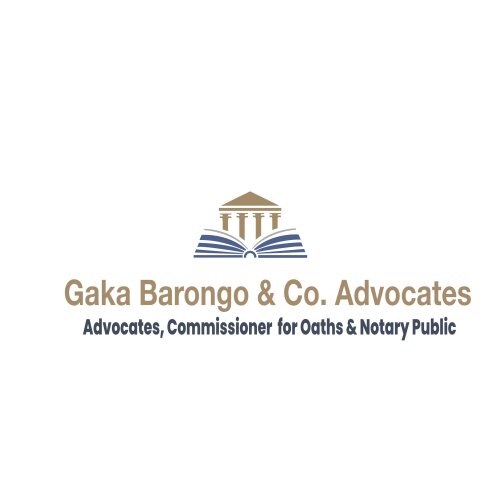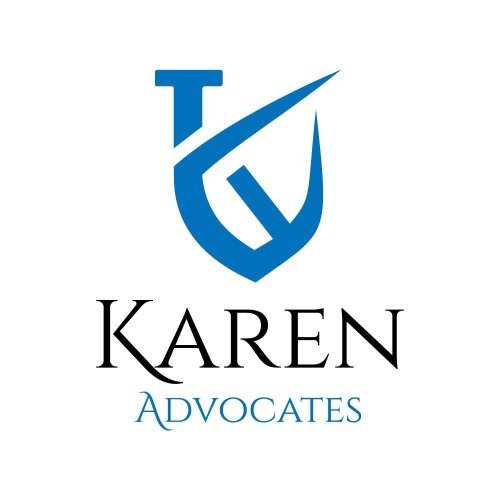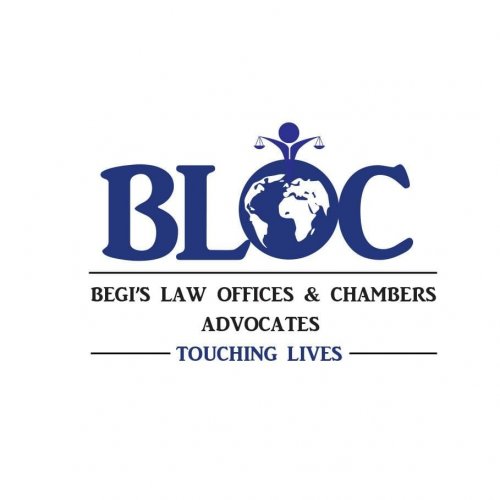Best Civil Rights Lawyers in Kenya
Share your needs with us, get contacted by law firms.
Free. Takes 2 min.
Or refine your search by selecting a city:
List of the best lawyers in Kenya
About Civil Rights Law in Kenya
Civil Rights in Kenya are enshrined in the Constitution of Kenya, 2010, which is the supreme law of the land. The Constitution provides extensive protections for citizens, focusing on ensuring equality, freedom, and justice for all individuals. Key areas include protection against discrimination, the right to privacy, freedom of expression, association and assembly, and access to justice. These rights are intended to promote social justice and protect the dignity of individuals across the country.
Why You May Need a Lawyer
Seeking legal assistance in Civil Rights matters can be crucial for several reasons. Common situations may include:
- Experiencing discrimination based on race, gender, ethnicity, or other factors in the workplace or in accessing services.
- Facing unlawful arrest or detention and needing representation to protect personal freedom.
- Challenges related to freedom of speech, including cases of censorship or defamation.
- Encounters with police brutality or violations of privacy and seeking redress.
- Addressing violations in land rights, which are particularly significant in rural and indigenous communities.
- Protecting the rights of persons with disabilities or safeguarding children's rights.
Local Laws Overview
Numerous laws in Kenya are geared towards the protection of Civil Rights:
- The Constitution of Kenya (2010): As the foundation for civil rights, it includes a comprehensive Bill of Rights that guarantees various freedoms and rights.
- The Employment Act (2007): Provides for fair treatment in employment and prohibits discrimination.
- The National Cohesion and Integration Act (2008): Addresses issues related to discrimination and inequality, especially concerning ethnicity.
- The Persons with Disabilities Act (2003): Ensures the protection of rights and access for persons with disabilities.
- The Children Act (2001): Focuses on safeguarding the rights and welfare of children.
- Public Order Act: Governs the right to assembly and protests to ensure public safety while allowing freedom of expression.
Frequently Asked Questions
What are my basic civil rights in Kenya?
Your basic civil rights include the right to life, freedom from discrimination, privacy, freedom of expression, association and assembly, and access to justice, among others.
How can I address discrimination in my workplace?
You can file a complaint with the Employment and Labour Relations Court or report to the Equal Employment Opportunity Commission for investigation and redress.
What should I do if I am unlawfully detained by the police?
Document the incident as best as possible, seek immediate legal counsel, and you may file a complaint to the Independent Policing Oversight Authority for redress.
Can I protest against government policies?
Yes, you have the right to peaceful assembly under the Constitution; however, it must be conducted lawfully and with prior notification to authorities as per the Public Order Act.
Where can I report cases of human rights abuse?
Cases can be reported to the Kenya National Commission on Human Rights or other human rights organizations for investigation and action.
What legal protections exist for indigenous peoples in Kenya?
The Constitution recognizes the rights of indigenous peoples and provides for the protection of their cultural practices and land rights.
How is freedom of expression protected in Kenya?
The Constitution guarantees freedom of expression but is subject to limitations on grounds of incitement to violence, hate speech, and defamation.
What are the rights of children under Kenyan law?
Under the Children Act, children have rights to education, protection, healthcare, and freedom from abuse and exploitation.
How can I protect my privacy rights under Kenya law?
You can assert your privacy rights through the Constitution, and issues can be addressed through legal channels if violated.
Are there laws protecting disabled persons in Kenya?
Yes, the Persons with Disabilities Act promotes and protects the rights and dignity of persons with disabilities in various areas including employment and accessibility.
Additional Resources
For additional information and support on Civil Rights issues, consider reaching out to these resources:
- Kenya National Commission on Human Rights (KNCHR)
- Law Society of Kenya (LSK)
- Federation of Women Lawyers in Kenya (FIDA)
- Independent Policing Oversight Authority (IPOA)
- Amnesty International Kenya
- Kenya Human Rights Commission (KHRC)
Next Steps
If you require legal assistance in civil rights matters, consider these steps:
- Consult with a legal professional specializing in civil rights to discuss your case.
- Gather all relevant documentation and evidence related to your issue.
- Consider engaging with civil society organizations for support and direction.
- File a formal complaint with the relevant authority or body, if applicable.
- Stay informed about your rights and potential legal areas of recourse.
Lawzana helps you find the best lawyers and law firms in Kenya through a curated and pre-screened list of qualified legal professionals. Our platform offers rankings and detailed profiles of attorneys and law firms, allowing you to compare based on practice areas, including Civil Rights, experience, and client feedback.
Each profile includes a description of the firm's areas of practice, client reviews, team members and partners, year of establishment, spoken languages, office locations, contact information, social media presence, and any published articles or resources. Most firms on our platform speak English and are experienced in both local and international legal matters.
Get a quote from top-rated law firms in Kenya — quickly, securely, and without unnecessary hassle.
Disclaimer:
The information provided on this page is for general informational purposes only and does not constitute legal advice. While we strive to ensure the accuracy and relevance of the content, legal information may change over time, and interpretations of the law can vary. You should always consult with a qualified legal professional for advice specific to your situation.
We disclaim all liability for actions taken or not taken based on the content of this page. If you believe any information is incorrect or outdated, please contact us, and we will review and update it where appropriate.
Browse civil rights law firms by city in Kenya
Refine your search by selecting a city.

















